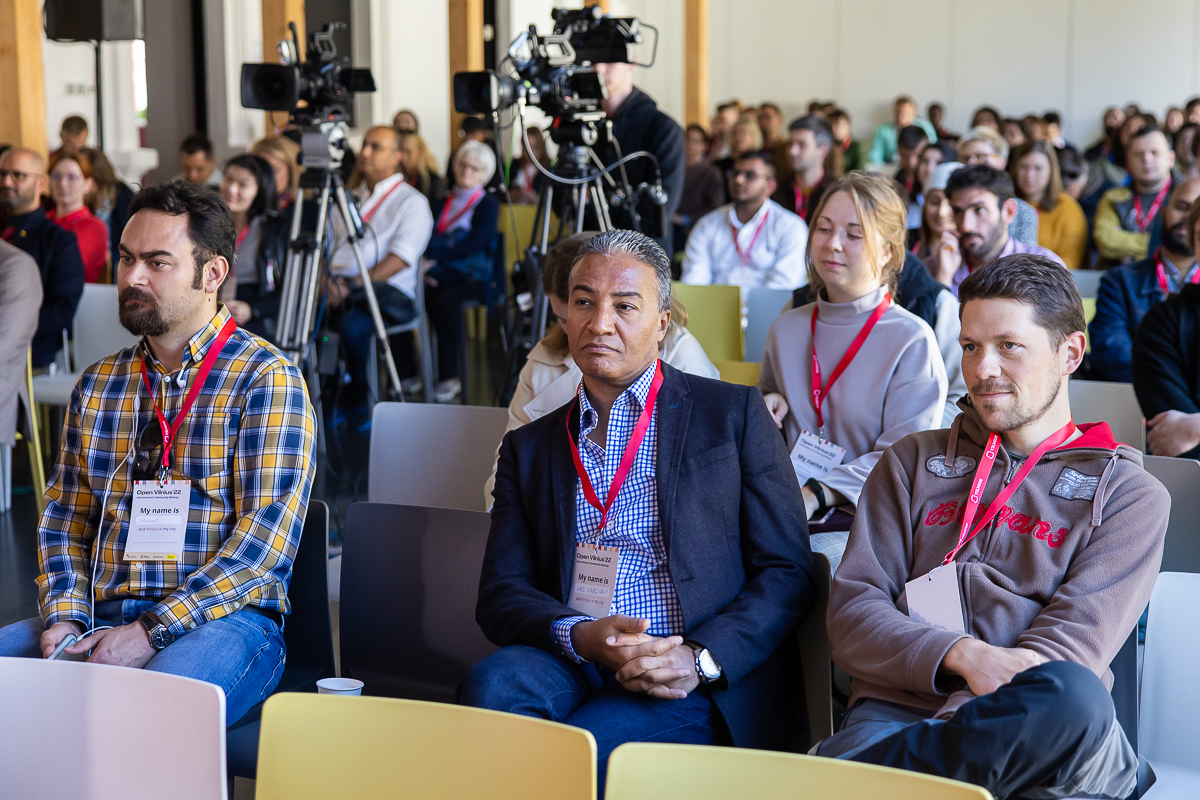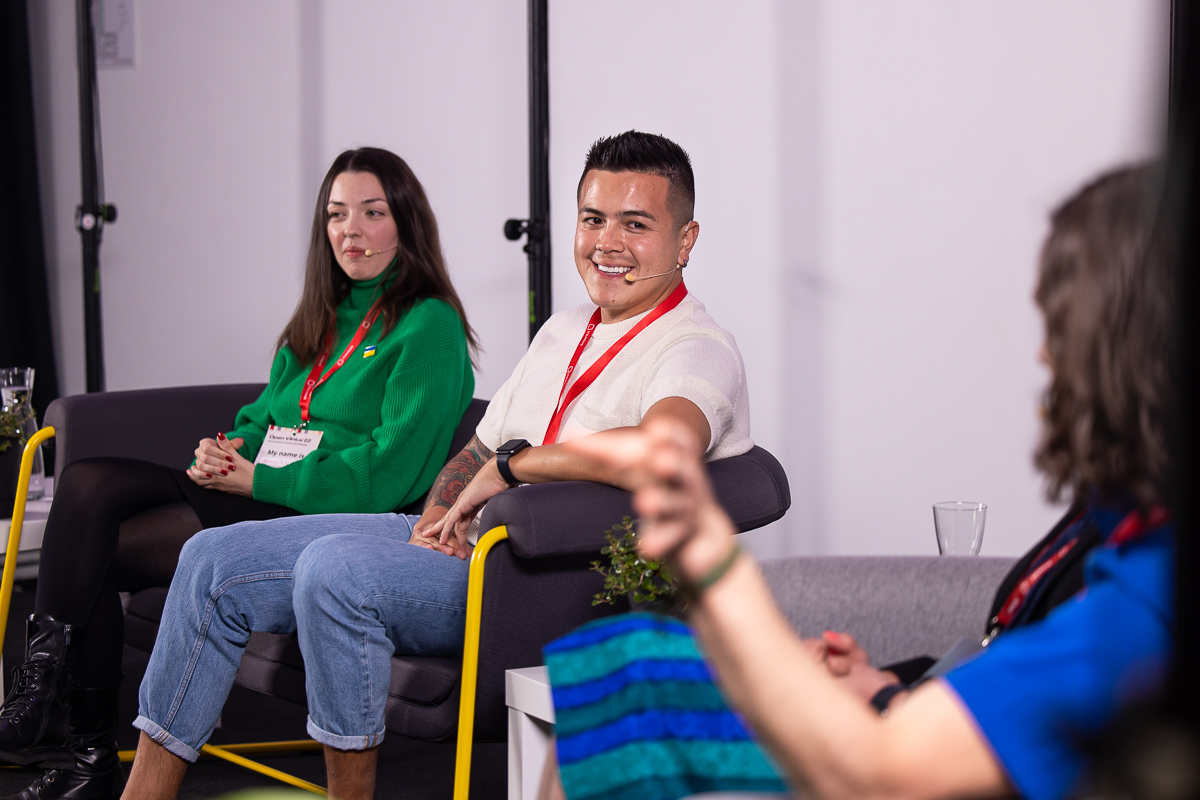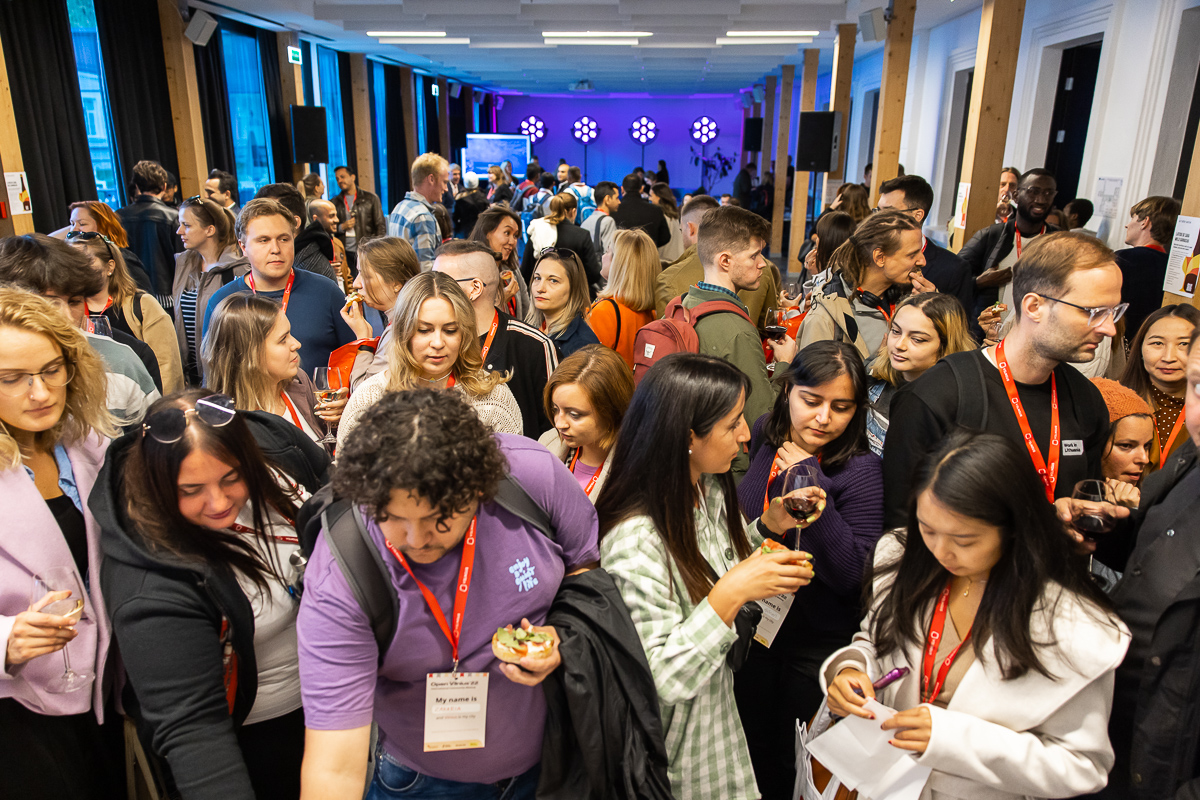Vilnius in the eyes of the foreigners living here
NEWS INFORMATION
Every tenth person who has declared their place of residence in the capital of Lithuania is a foreigner. Open Vilnius’22, a festival organised for the first time in Vilnius for foreign citizens living in the capital, brought together almost 500 participants. Even though they chose to live in Vilnius for different reasons, these foreigners face similar challenges integrating into the life of the capital.
At the inaugural festival, there was no shortage of praise for Vilnius –the things foreigners like the most about the capital are its compactness, greenery, cosy atmosphere, and friendly and helpful people. However, most foreigners also say that making friends and integrating into local life is no easy task. Dr Stephen Jones, who came to Vilnius from the United States, joked that when he moved to the capital, the neighbours didn’t rush to welcome him, but the situation changed drastically when he and his wife got a dog – at first the entire neighbourhood began saying hi to their pet, and, eventually, to him as well.
Fabian Sanchez, who came here from South America nine years ago, admitted that it took time for him to get used to the cold weather, as well as to Lithuanians, who also seemed rather cold at first. “Only after I started working for a big company did I see what they were really like; they were very hospitable – it turns out you just need to give them some time,” said the Ecuadorian.
Thibaud Catry, who is originally from France and has been living in Vilnius for 13 years, was full of praise for the capital’s restaurants. “It’s nice to see how the face of Vilnius is changing, namely through culinary experiences and the restaurant culture. That’s what I missed most being far away from home,” said Mr Catry. When asked why he chose Vilnius as a place to, Thibaud answers simply: Vilnius is quality of life. “As a Frenchman, many people ask me – why not France? And my answer is very simple: I’d be spending four hours a day there in traffic jams, and if I ever spontaneously decided to spend some time in the outdoors, it would be very complicated. The compactness of the city of Vilnius allows you to avoid the ‘work - home - sleep - work’ mode. Here, nature is at your fingertips.”
61,000 foreigners living in Vilnius
Inga Romanovskienė, director of Go Vilnius, the tourism and business development agency of the City of Vilnius, says that the idea for a festival like this was dictated by the foreigners living in Vilnius. A survey of foreigners living in the capital city conducted this summer showed that without knowing Lithuanian, it is difficult for a foreigner to integrate into the Vilnius community.
A survey of foreigners living in the capital conducted by the Go Vilnius agency showed that four out of five foreigners are satisfied with life in the capital, although some of them still face various problems. Foreign nationals often experience difficulties finding a job or housing and using services, and what they probably lack most of all is an opportunity to learn the Lithuanian language and get involved in the activities of the local communities. However, comparing the latest survey with last year’s results, positive changes are evident.
“The latest statistics show that more than 61,000 foreigners have declared their place of residence in Vilnius, which means that every tenth Vilnius resident has come from abroad. Foreign nationals come to Vilnius not only to work, but also to live here with their families. It’s only natural for these people to make use of the services available, look for educational opportunities, and try to gradually become part of the city. We want every person who comes to Vilnius to feel welcome, to be able to integrate more easily not only into the work environment, but into the activities of local communities as well, and to feel at home in the capital city,” says Agnė Camara, who is the head of International House Vilnius, the relocation and integration service centre for foreigners.
According to Ms Camara, International House Vilnius has already taken a number of initiatives to help integrate foreign citizens into the Vilnius community. For example, the BeFriend Vilnius mentoring programme helped Ukrainians get to know people faster and easier and make local friends. Any Vilnius local can become a mentor or register to receive help from mentors. The success of the programme has prompted the expansion of activities to include foreigners from other countries as well. Meanwhile, the Open Vilnius’22 festival provided an opportunity to get to know the people who live here, share experiences, and get inspiration from others.
The International House Vilnius relocation and integration service centre for foreigners was established in 2021 and is a joint initiative between Go Vilnius, the tourism and business development agency of the City of Vilnius, and the Work in Lithuania programme, which encourages foreign talents to pursue a career in Lithuania. By concentrating the services of the most important institutions in one place, International House Vilnius has already helped more than 10,000 foreigners who chose to work and live in the capital.
If you were not able to attend it, we invite you to watch the full recording on our Facebook Page.




